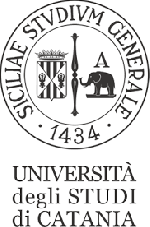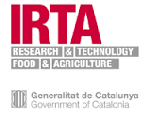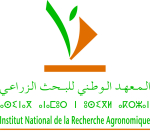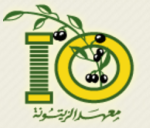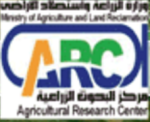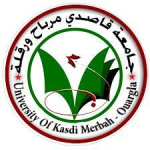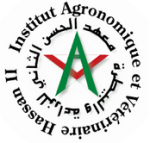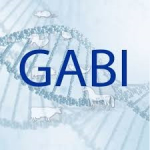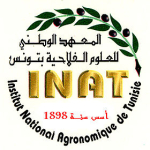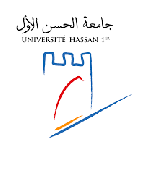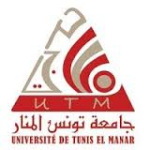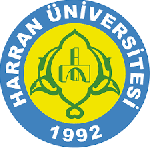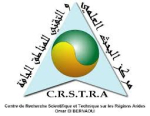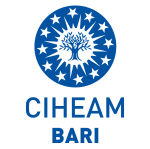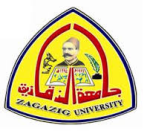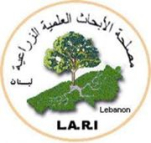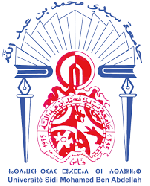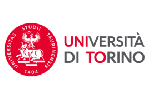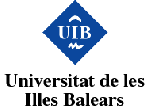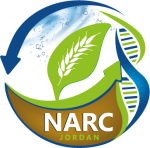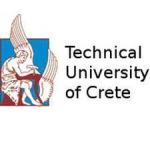Partnership for Research and Innovation in the Mediterranean Area - PRIMA
Overview: FARMING.Adaptation - Adaptation of agriculture to climate change
Project Officer: Fabrice Dentressangle, Partnership for Research and Innovation in the Mediterranean Area - PRIMA
Team
members: 122
Partner
organizations: 80
Budget
EUR :
20.964.116
Projects: 10
Atlas
Outcomes and Impact
| Outcomes and Impact | Type | Indicators | View |
|---|---|---|---|
| Valorise the germplasm collections maintained in Mediterranean countries, which hold large genetic diversity and contain genotypes adapted to a large diversity of stressful environments; | development outcome | 0 | |
| Promote IFS with quality and sustainability, having organic and family farming as reference; | development outcome | 0 | |
| Capitalize current and new knowledge about genetic mechanisms of tolerance to abiotic stresses; | research outcome | 0 | |
| Capitalize physiological and morphological mechanisms of responses to abiotic stresses; | research outcome | 0 | |
| Develop/improve selection methods that will increase our ability to enhance breeding approaches and crop management practices increasing maize tolerance to abiotic stresses; and | research outcome | 0 | |
| Identify drought and heat tolerant varieties from previous breeding programs that can be released to farmers for sustainable and environmentally friendly production of maize under increasing stress. | research outcome | 0 | |
| SHORT-TERM. Improved monitoring of soil and land degradation in the Med. context through a harmonised set of indicators. The underlying Call assumption here is that monitoring SEH enables LD monitoring, and the MR-adapted harmonized SEH indicators and monitoring protocols are the main project deliverables (WP3-4). The SIS is a further enabler of improved monitoring, beyond Call expectation. KPIs: 1) Number of Med countries/regions LLs involved in developing, validating and implementing the MR-adapted harmonized indicators and protocols, and the SIS software tool, ≥9. 2) N. of non-EU Med countries where a LUCAS-inspired sampling grid is designed and tested, 6. 3) N. of study areas where monitoring protocol is fully implemented on the ground, ≥9. 4) N. of point sites included in the new harmonized SEH open access dataset generated across the MR, >2000. 5) N. of Med countries/regions where SIS is installed at host institutions, ≥5. | research outcome | 0 | |
| SHORT-TERM. Mapping research infrastructures and Living labs as enabling environment for the monitoring and assessment. Research infrastructures, including labs and data management facilities capable to implement monitoring and manage SIS, as well as research teams / agencies with capacity to support the process, will be mapped (WP2 deliverable; collaboration with FAO-GSP). Existing certified and potential LLs will be mapped based on criteria set by reference organisations like ENOLL and on project’s LL experience (WP8 deliverable). KPIs: 1) N. of reference laboratories identified in partner Med countries/regions, ≥9. 2) N. of entities with SDI management capacity identified in partner Med countries/regions, ≥9. 3) N. of existing or potential soil LLs identified in partner Med countries/regions, ≥9. | research outcome | 0 | |
| SHORT-TERM. Contribution to the JRC's Soil Atlas of the Mediterranean Region. SOILS4MED will do a unique preparatory work for the future Soil Atlas of the MR: legacy data and maps inventoried, digitized, harmonized across different lab methods, data specifications, and soil classification systems (towards WRB 2022), thus made understandable and usable for data owners first, and potentially sharable for use by partners and by the public (WP2 deliverable). KPIs: 1) N. of legacy soil maps retrieved and made usable, ≥100. 2) N. of legacy georeferenced point data (including full profile files) retrieved and made usable, ≥1000. | research outcome | 0 | |
| LONG-TERM. Assessing potential positive effects on the agro-ecosystem water, carbon and nutrients cycle of appropriate soil management practices through a validated and harmonised set of indicators (biological, chemical, and physical). This long-term impact will be achievable thanks to SOILS4MED, if the wished soil monitoring systems will be established in the MR, because: i) project’s indicator sets will be really integrated (provide information on multiple soil functions; water, carbon, and nutrients), as secured by WP3, and will be responsive in the diverse soil and environmental contexts (WP4); and ii) the monitoring system will generate data needed by tools used to support SSWM planning and assessment: such tools will be identified, further developed, applied, and demonstrated in test cases in selected study areas (WP6 deliverables). KPIs: 1) The delivered integrated indicator sets include properties that are directly linked to agro-ecosystem water, carbon, and nutrient cycle and that are responsive to soil management (deliverables D3.4 and D4.3). 2) N. of major online SSWM multi-tool platforms further developed and tailored for use in test cases, 1. 3) N. of non-EU study areas where SSWM tools are demonstrated in test cases, ≥4. 4) N. of sc. publications on use of SEH SDI and tools to plan/assess SSWM in MR, ≥6. | research outcome | 0 | |
| LONG-TERM. Enabling Improved predictions for the potential role of Mediterranean soils for soil carbon sequestration and how external disturbances can affect this potential. WP7 will demonstrate that this long-term impact will be fully achievable, if the wished soil monitoring systems will be established in the MR: enhanced predictions of C-Stock and C-seq. potential are WP7 deliverables (among others), that are made possible by the SOC field data generated by the project and by the project sampling strategy designed to target diverse agroecological conditions, soil types, and levels of degradation (disturbance). KPIs: 1) N. of MR-wide soil maps/datasets which quality is improved thanks to project-generated SDI, ≥2. 2) Methodological pathways developed to achieve quality improvement by SDI integration (deliverable D7.4). 3) N. of sc. publications on prediction and mapping of soil C-stock and C-seq. potential, ≥6. | research outcome | 0 | |
| LONG-TERM. Mitigating the advance in desertification through improved SIS able to alert on risks for soil degradation. This expected long-term impact implies capacity to generate spatially explicit information on soil degradation risks. Thanks to SOILS4MED, if the wished soil monitoring systems will be established in the MR, this impact will be achievable, because i) WP4 will secure that the indicator sets capture the relevant facets of soil/land degradation enabling to set LD baselines and monitor LD trends, and ii) WP6 will secure that the obtained SDI can duly feed relevant land degradation neutrality (LDN) tools. KPIs: 1) The delivered integrated indicator sets include properties that are directly linked or linkable to soil degradation and land degradation/desertification risks (deliverables D3.4 and D4.3). 2) N. of tools to plan mitigation of LD and achieve LDN demonstrated in test cases in study areas, ≥2. 3) N. of sc. publications on soil condition and degradation monitoring/mapping, ≥6. | research outcome | 0 | |
| First outcome: Reduction of the risk of failure associated with yield losses and climate change | development outcome | 0 | |
| Second outcome: Reduction of intervention for water supply | development outcome | 0 | |
| Third outcome: Valorization of microbial endophyte biodiversity and consequent ecosystem services to the plant analysing and selecting the optima consortia of endophytes. | research outcome | 0 | |
| Fourth outcome: Valorization of the local grapevine biodiversity that has naturally adapted to environmental constraints in the Mediterranean conditions; | research outcome | 0 | |
| Fifth outcome: A high improvement of knowledge on the metabolic pathways regulated in grapevine cultivars upon exposure to drought | research outcome | 0 | |
| Impact 1: For each variety, 15-20 genetic markers of tolerance to water stress to be used in early screening in nurseries, or in breeding programs for the production of new tolerant varieties. | research outcome | 0 | |
| Impact 2: One collection of culturable grapevine microbiomes, characterized for their beneficial properties in the plant response to water stress. Overall, we will produce collections representative of different Mediterranean districts (Sicilian and Algerian). | research outcome | 0 | |
| Impact 3: Ready-to-use microbial endophytic preparations following the optimization of producing and formulation protocols. These preparations can be safely used in the field without the risk of altering the local biodiversity. | development outcome | 0 | |
| Impact 4: 1 model for the study of plant-microbe interaction under controlled conditions in response to abiotic stresses useful to other perennial fruit crops. | research outcome | 0 | |
| Impact 5: 2 innovative procedures (double grafting or direct inoculation) to produce commercial material enriched with beneficial endophytes. | development outcome | 0 | |
| E1.More efficient use of natural resources and better climate change adaptation. Local crop varieties with increased resistances to droughts and extreme weather; Microbial and chemical biostimulants that increase nutrient efficiencies and drought resistances; Agronomical practices to increase soil water holding capacity ↓ 25% average use of irrigation water ↓ 40% average use of N and P fertilizers | research outcome | 1 | |
| E2.Improved economic and social resilience of Mediterranean smallholder farming systems to climate change. With full-cost/value accounting, the value of local natural capital (ecosystem services) will be revealed in terms of higher small-farms’ resistance towards climate variability and costs’ reduction due to lower payments for insurances and compensations. At the social level, the increased efficiency will release time for the improvement of family relationships and the personal development of women.↓30% cost for insurance fees and compensations against climate events ↑50% efficiency and available time for the family and the personal development of women | development outcome | 2 | |
| E3.Contribution to zero waste farming system. Local biomasses are recycled as soil amendments and not wasted; Leaching of N to groundwater is reduced by using N-fixing microorganisms; Pesticides is pollution is reduced by employing crop varieties resistant to pests and microorganisms with ↓ 60% reduction of wasted useful biomasses ↓ 30% of N leached to groundwater ↓ 50% of pesticides applied. | research outcome | 3 | |
| E4.Increased income of the farmers from biodiversity use,improved techniques and products certification. The substitution of conventional methods (e.g. agrochemicals) by eco-based methods, combined with full-cost/value accounting, will increase small farms’ income, while the monetization of the PEF performance at all production stages -“from farm to fork”- will attract significant financial capital to small-farms for further improvements. ↑ 50% of small-farms’ income ↑65% PEF performance compared to conventional agriculture ↑75% capital investment due to ↑PEF. | development outcome | 1 | |
| E5.Engaged Youth, Empowered women Special attention will be paid to the involvement of female stakeholders, stimulate networking and participation of women to dissemination events, courses and workshops. Moreover, participation to these events will be promoted among youth. Training courses will aim to involve researchers, MSc and PhD students to develop and enhance the multifaceted training of young scientists. This will also help on the integration of project results into curriculums of university participants. ↑ 20% or more of women’s and ↑ 30% or more of youth (< 30 years old) participation in courses and workshops. | development outcome | 2 | |
| E6.Encouraged consumption of food produced using more sustainable practices Open discussions during the demonstration workshops (T6.3) will promote consumption of food produced using more sustainable practices. It will also be promoted through promotional and information materials, as well as social media. Expected 40 participants from local communities (citizens) in the open discussions in the frame of the demonstration workshops. | development outcome | 1 | |
| E7.Reduction of greenhouse gases (GHG) emissions from soils. The adoption of no-tillage practices and the soil application of humified organic matter, strongly foreseen in SIRAM as 2 main pillars, are known to reduce GHG emissions ↓ 30% of GHG | research outcome | 1 | |
| E8.Increase of structural and functional biodiversity of agricultural soils. Sustainable agriculture practices adopted in SIRAM (beneficial microorganisms, no-tillage, cover crops, applied biomasses) will result in an increased soil biodiversity and enrichment of beneficial microorganisms ↑ in soil bacterial and fungal diversity indexes ↑ of OTUs with beneficial traits. | research outcome | 2 | |
| E9.Understaning of plants induced systemic resistance (ISR) processes SIRAM will carry out advanced omics studies to assess the gene expression and metabolomics response of plants exposed to ISR-eliciting microorganisms >20 metabolites discovered >40 genes expressed 1 process described. | research outcome | 2 | |
| E10.Valorizaton of local biodiversity SIRAM will isolate, characterize and apply bacterial and fungal strains with stimulation and defence abilities, and plants with resistance towards abiotic stresses >100 new beneficial strains discovered >10 genomes sequenced >10 resistant crop varieties tested. | research outcome | 3 | |
| Consumers and society demand safe, healthy, and sustainable water and food. VEG-ADAPT solutions for sustainability will contribute to securing vegetable production while reducing the environmental load, in particular on water availability and quality. Non-agricultural water users and society at large will benefit also of the lower water mark and environmental quality of plants grown following VEG-ADAPT guidelines. Protecting vegetable crop cultivation from effects of global change also has wide implications for securing jobs in particular in the most exposed South bank countries, whose vegetable industry is however actually booming. Thus, VEG-ADAPT will contribute to preventing loss of jobs and consequent social instability and migration, as explored in WP5. | research outcome | 0 | |
| Low-input and conventional farmers need practical solutions for increasing vegetable resilience to multiple stress induced by climate change, avoiding production losses and reducing resource inputs and production costs. They will have at their disposal new resilient genotypes/rootstocks (WP1, WP4) and optimized management techniques for open field and protected cultivation (WP4) which will be validated for their socio-economic and environmental sustainability in WP5 and demonstrated in WP6 | research outcome | 0 | |
| Organic farmers have even larger exposure to climate effects than conventional producers, in particular due to the spread of existing and novel pests and pathogens favoured by lower crop fitness and changes in environmental conditions. These crop management innovations provided by VEG-ADAPT will be developed under conventional agriculture conditions, but their nature (novel genotypes, organic amendments) will make them potentially usable also for integrated and organic systems. Furthermore, the resilient genotypes selected within VEG-ADAPT will be tested for their susceptibility to pests and pathogens, and guidelines for integrated pest management will be delivered | research outcome | 0 | |
| Extension services and professional advisors require continuous update on biological processes and derived techniques that can mitigate climate change effects in crops. They will have at their disposition guidelines (WP 1 to 5) and technical/scientific publications (WP6) that will allow them to share the novel knowledge and practical solutions developed by the project. | research outcome | 0 | |
| Breeding and seed companies, in particular SMEs, strive for innovation that can be turned into marketable technology and know-how. They will benefit from innovations developed by the project and made available in accordance with Open Data principles. This will refer in particular to selected, climate resilient landraces (WP1), new varieties and hybrids to be used for breeding programmes (WP2, WP3), and novel selection markers to be used for marker-assisted selection (MAS) (WP3). | research outcome | 0 | |
| Policymakers request science-based advice and support for policy implementation. VEG-ADAPT will provide information on economic, environmental, and social impact of climate change in the vegetable industry and the implications of uptake of VEG-ADAPT innovation (WP5). Furthermore, it will provide recommendations for policies and regulation concerning management of agricultural water and IP issues linked to germplasm exploitation in the Mediterranean (WP5, policy briefs in WP6). | research outcome | 0 | |
| Researchers. It is widely recognised that the number of plant scientists is inadequate with respect to the gravity of the challenges agriculture is facing worldwide, due to climate change conditions and growing population. VEG-ADAPT will contribute to filling this gap through the technical training and international secondments offered to scientists/technicians/practitioners within and outside the Consortium. Additionally, its communication strategy specifically aims at raising the awareness in society about such challenges, and at recruiting the youngest to plant sciences. VEG-ADAPT is thus expected to build Mediterranean capacity both directly and indirectly. | research outcome | 0 | |
| Soil health conservation practices: These practices are improve soil health and overall agroecosystem performance. | research outcome | 0 | |
| Links of soil health and microbiota: Identification of such links and "keystone" species will iprove the resilience of Mediterranean egro-ecosystems to abiotic stresses | research outcome | 0 | |
| Soil biogeochemical modelling: The obtained simulations will allow us to expand experimental sites findings at timescales appropriate for agro-ecosystem management | research outcome | 0 | |
| Development of a soil health assesment tool: This tool will enables the interpretation of soil health status in the Mediterranean (and beyond it) pedo-climatic conditions | research outcome | 0 | |
| DSS Software development and training: This tool in fact attempts to translate research findings to user friedly software to help farmers in decision making | development outcome | 0 | |
| Identification of SES constrains and mechanisms for improvement: This activity will allow us to achive consensus on which problems exist and need to be solved so that new practices can be incorporated | research outcome | 0 | |
| Cost benefit analysis of the soil heath conservation practices: The cost benefits will help to identify satisfying alternatives from the farmer viewpoint by means of multicriteria analysis as well as in the development of appropriate incentives to promote soil health conservation practices | research outcome | 0 | |
| Dissemination and Communication: The dissemination and communication activities will help to maximize the visibility and the impact of the proposal. | research outcome | 0 |
Projects
| Acronym | Project Title | Year | Section | Project Coordinator | Coordinating Body | Budget | Start Date | End Date | View |
|---|
Publications and Outreach
| Priority Area | Project Acronym | Type of the scientific paper | Title of the scientific paper | Authors | DOI | DOI | Download link | Download link |
|---|
Personnel Involved
Partners


































